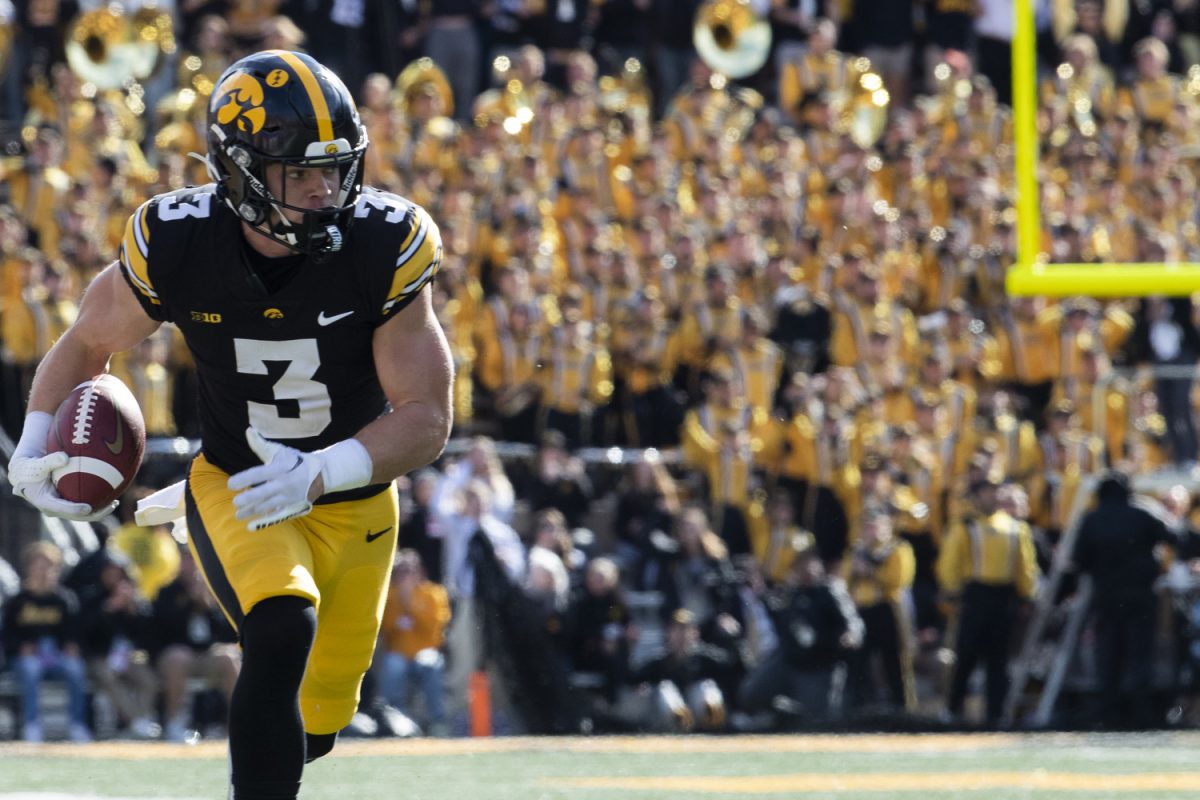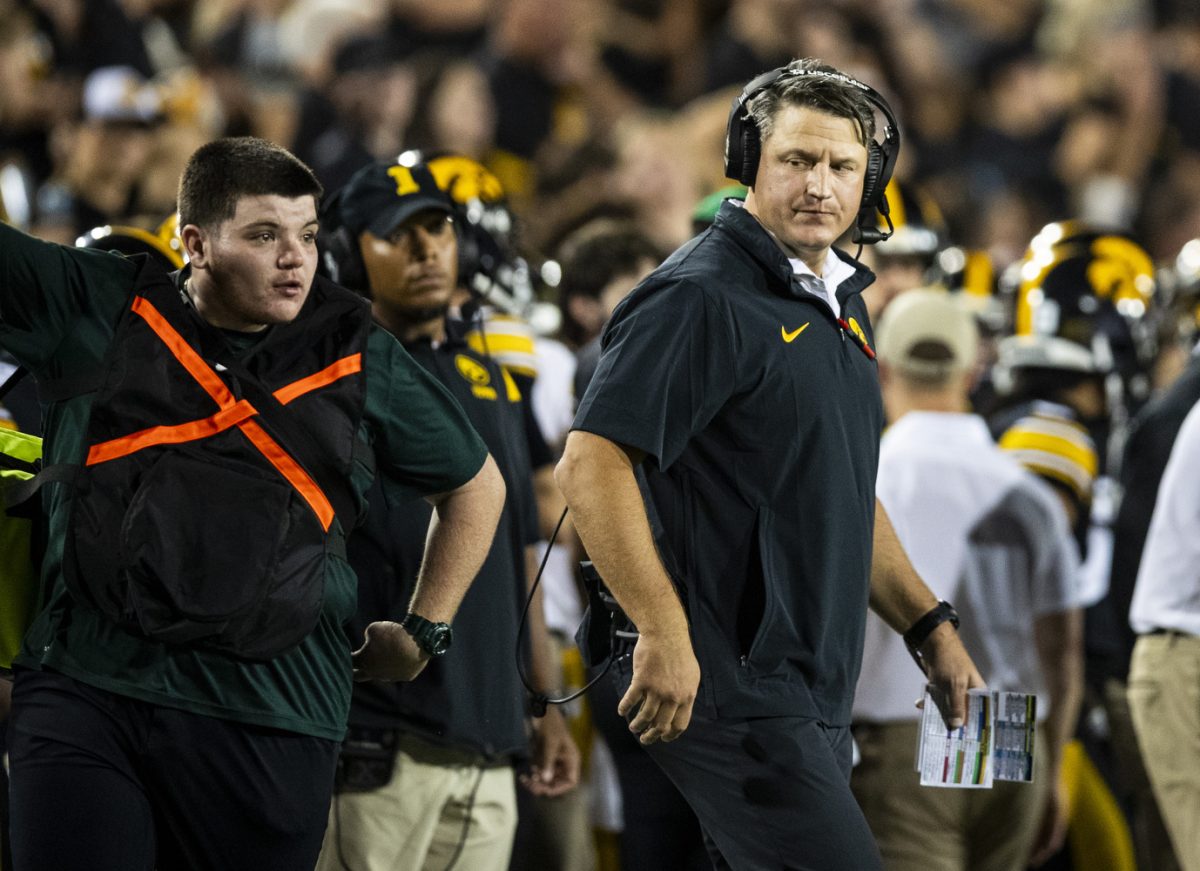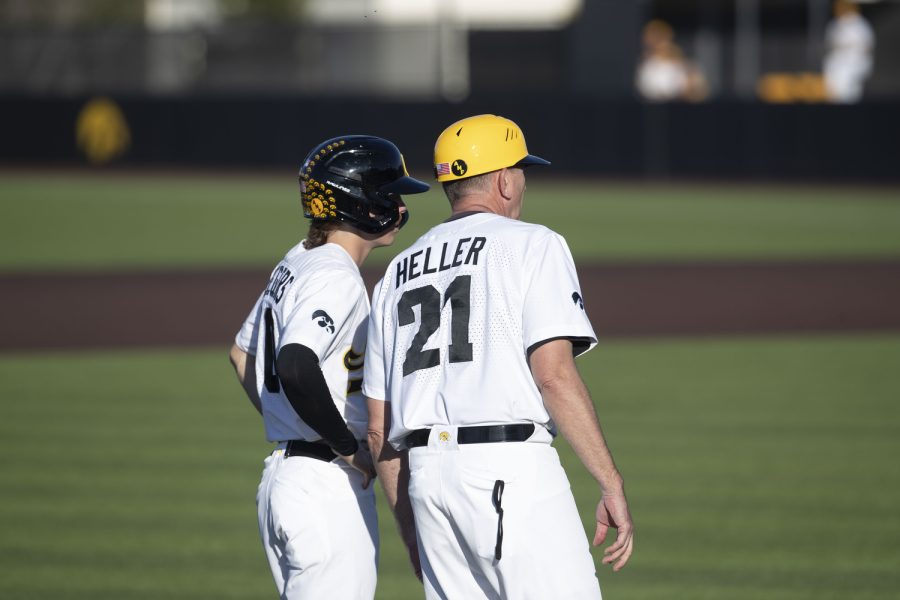Derrell Johnson-Koulianos was released from a football team.
Again.
Big surprise.
DJK had planned on playing for the Montréal Alouettes in the Canadian Football League, but the team announced in a brief press release on June 16 that he would be released from the roster, along with eight other players.
That brings the total up to three. Three teams have given DJK the boot: Iowa in 2010, the Arena Football League’s Iowa Barnstormers in February, and now the Alouettes.
The then-Hawkeye receiver was dismissed by Iowa head coach Kirk Ferentz after DJK was arrested with drug charges. Ferentz openly expressed his disappointment about his player’s actions — not unlike an angry father disowning an unruly son.
Neither the Barnstormers nor the Alouettes have documented off-the-field issues with Johnson-Koulianos. Barnstormer coach Mike Hohensee even denied any such problems in a release earlier this year, claiming that DJK’s release was merely a "football decision."
But I find it hard to believe that Iowa’s most scandalous player was just released from his third team in two years on merely a coincidence. I believe that DJK’s drug record, his reputation, or maybe even just his attitude followed him all the way to Canada.
And I think I believe that because I believe something that Ferentz apparently doesn’t agree with: The quality of players’ morals in their personal lives will affect what happens on the field.
The DJK scandal — in which the receiver was initially faced seven drug charges in December 2010 (he pleaded guilty to marijuana possession and the other charges were dropped) — rocked all of the Hawkeye Nation. It was seen as a sense of betrayal to the Black and Gold, as a talented receiver single-handedly destroying his career.
But what does Ferentz do fewer than two years later? He recruits Greg Garmon, who was arrested in Pennsylvania on yet another drug charge earlier in the month.
Garmon was pulled over by police in his hometown of Erie, Pa., on June 1, then charged with possession of marijuana and possession of drug paraphernalia. The running back isn’t even on a college campus yet, and he’s already getting himself into trouble. Even so, Garmon is expected to start training in Iowa City shortly.
When will Ferentz learn? He didn’t learn after DJK or Adam Robinson, who faced drug charges shortly after Koulianos, so will Garmon’s criminal charge finally open the coach’s eyes?
Iowa needs to start recruiting players who have quality characters behind their face masks. Division-I athletes shouldn’t come to campus with criminal records, and Big Ten football players should leave school and enter the working world, not a jail.
Iowa had the second-most charged or alleged criminals on its football team in 2011, according to a study done by Sports Illustrated in March of last year. The only school with more bad eggs than the Hawkeyes’ 18 was Pittsburgh with 22.
Pittsburgh’s crime index is more than double Iowa City’s, but the Hawkeyes fall just under the Panthers when it comes to those charged in football uniforms.
DJK’s release from Montréal just brings everything back up again, that Iowa’s decision to recruit risky athletes has come back to haunt its offense. That a failure to hold a high standard of personality has dropped the standard of Iowa football. That the Hawkeyes need to expect more from their alumni than release from the Canadian Football League and more from their recruits than marijuana charges and simple misdemeanors.






